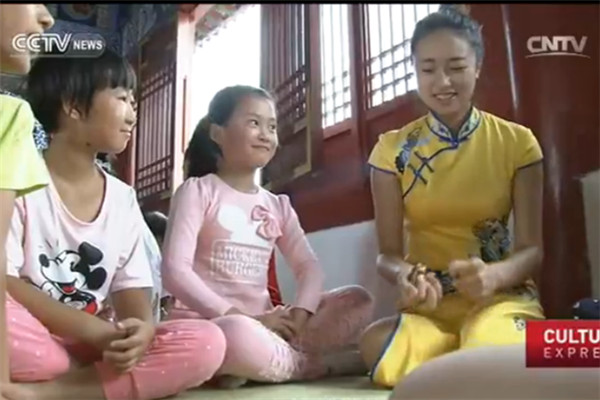The city of Hetuala in Northeast Liaoning Province has an important place in Chinese history. It was built at the beginning of the 17th century, and is often referred to as the "first city of the Qing dynasty". Currently, the city is hosting free summer camps for students to help them know more about the World Heritages site.
These children come from across the country for a journey into the historical city of Hetuala.
The tour guide starts off with a popular game of the era called "gachuha". It involves throwing and catching pieces of sheep knee bones. Though it takes a bit of getting used to, the ancient game soon becomes a favorite among these youngsters today.
"My friend gave me a set of gachuha, but my child didn't know how to play it. We learned it today, and we're hooked on it," said Huang Huan, parent.

The tour guide starts off with a popular game of the era called "gachuha". It involves throwing and catching pieces of sheep knee bones.
Another traditional Manchu game is string flipping. This is relatively easier as it's more popularized in the country.
"I played it in school, it's called "Gaibeng" but I don't know how to spell it," said Li Xinying, student.
"Gaibeng means changing patterns. You can create many patterns with the string, such as a handkerchief, or noodles like these," said Cui Bing, tour guide.
Hetuala is the birth place of Nurhachi, founding father of the Qing Dynasty. Right at the gate of his former residence, the students have a quick brush up on the Manchu language.
The camp has also attracted local students as well. Many of their parents believe that the camp is both educational and entertaining and hope that it would continue in the future.
"We grew up with these stuff, like the gachuha and Gaibeng. Nowadays, children are deprived of the simple joy which is replaced by video games and cell phones. I think it's a great activity to pass down our traditional cultures," said Miao Juan, local parent.
The summer camp lasts until the end of August and is all free of charge.















